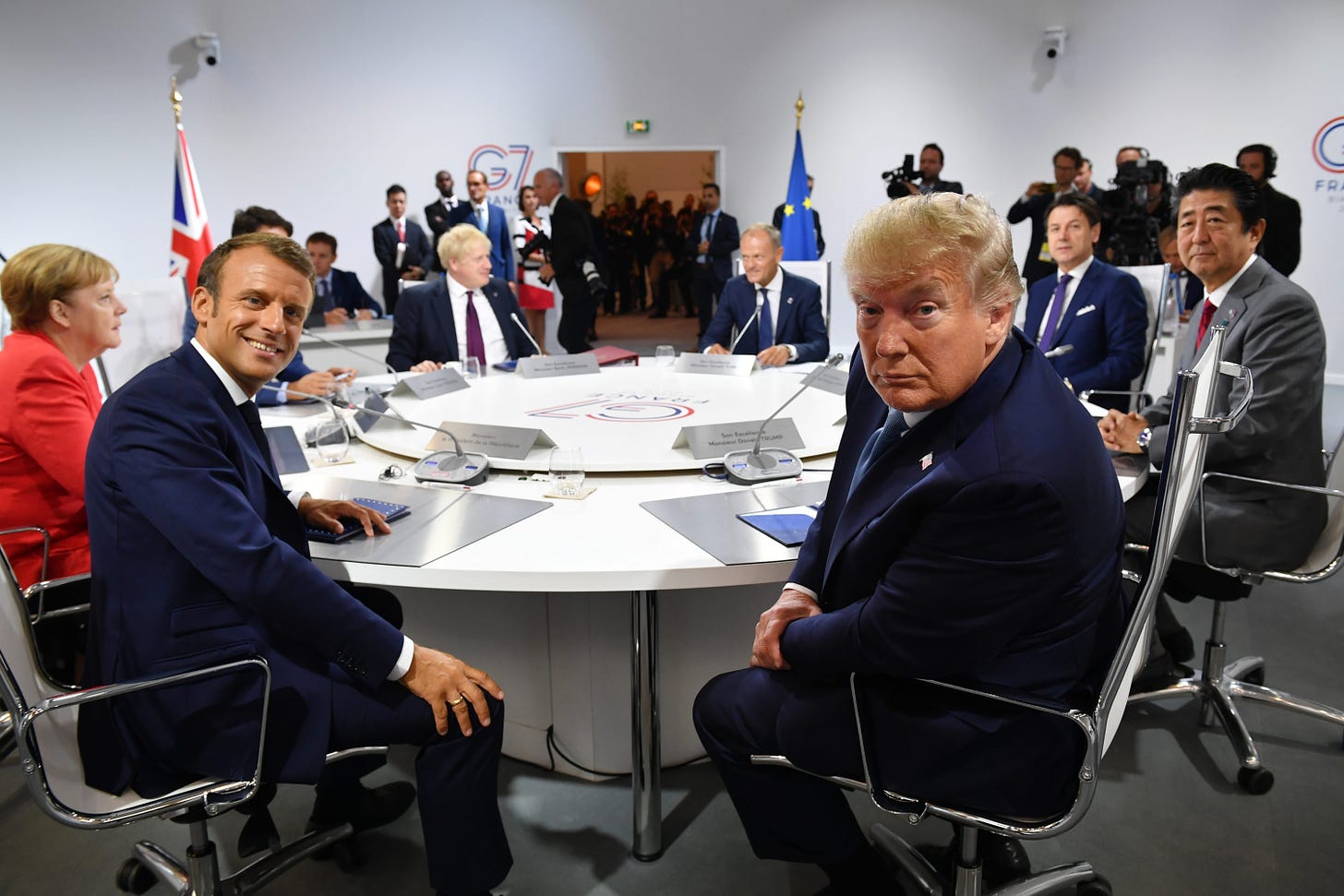Meet the New Trade War, Same as the Old Trade War
The Trump administration threatens tariffs on European goods, because it worked so well with China.

Albert Einstein famously defined insanity as repeatedly doing the same thing yet expecting different results. He wasn’t commenting on the Trump administration’s trade policy, but he just as well could have been. After three years of unsuccessfully using a restrictive tariff policy to reduce the U.S. trade deficit with China, the administration appears poised to lead the country down the same path with Europe.
Over the past three years, the Trump administration has pursued an American First trade policy aimed at eliminating the country’s trade deficit. This policy has included the widespread imposition of aluminum and steel tariffs, a trade war with China, and the renegotiation of NAFTA. It has also included repeated refusals to sign G-20 communiqués committing countries, including the United States, to refrain from intensifying trade protection.
For all that effort, the results have been underwhelming. Far from narrowing, the trade deficit has widened by around 30 percent under President Trump’s watch to its present annual level of around $700 billion. Meanwhile, ignoring Trump’s repeated calls for a weaker dollar, the dollar’s consistent strength continues to undermine U.S. export competitiveness.
Yet more disturbing, Trump’s shift to a protectionist trade policy has done major damage to the global economy by injecting turmoil into Chinese markets and heightening investor uncertainty about the stability of global supply chains. According to the IMF, largely as a result of U.S. trade policy, the global economy has shifted from a position where 75 percent of the world’s economies were experiencing economic upswings in 2018 to one in which 90 percent of the world’s economies are experiencing economic slowdowns today .
Most economists subscribe to the view that a country’s trade deficit is arithmetically the difference between what a country saves and what it invests. If a country saves less than it invests, it will run a trade deficit, while if it saves more than it invests, it will run a trade surplus.
Unlike the Trump administration, most mainstream economists, who view the trade balance as the difference between savings and investment, have not been surprised that the U.S. trade deficit has widened despite increased import tariffs. After all, under Trump’s watch the U.S. budget deficit has ballooned to around $1 trillion a year as a result of his large, unfunded corporate tax cut of 2017. That in turn has reduced the country’s savings level and has brought in its wake budget and trade deficits reminiscent of the Reagan years.
Undaunted by his tariffs’ failure to reduce the trade deficit, the Trump administration now appears to be gearing up for a trade war with Europe. In a recent interview, U.S. Trade Representative Robert Lighthizer suggested that the Trump administration was ready to escalate its confrontation with the EU, potentially through new tariffs, with the goal of reducing the large trade deficit that the U.S. has with Europe. Those new tariffs would add to the $7.5 billion in tariffs that the U.S. recently imposed as part of its dispute over European aircraft subsidies.
The last thing that an already weak European economy needs is a trade war with the United States. The German economy is already practically in a recession as a direct result of the Chinese economic slowdown, while Brexit uncertainty has placed the U.K. economy on the cusp of recession. Meanwhile, the heavily indebted and sclerotic Italian economy has continued to stagnate, which is bound soon to raise questions about its ability to service its public debt.
Despite the “America First” moniker, it would seem not to be in the American interest to weaken the European economy any further.Such a shock is bound to have collateral effects on the rest of the global economy and put further upward pressure on the dollar. Nor would it be in the U.S. interest to invite European retaliation to our imposition of tariffs on its exports.
Over the past three years, the Trump administration has made numerous import tariff threats only to back away when it grasped the economic damage that tariffs were doing. Hopefully, the same will prove true of the most recent round of saber rattling. Otherwise, we should brace ourselves for renewed European sovereign debt crises and their unwelcome spillover effects on the U.S. economy.









